Development Forum 2: Control discipline development in the age of AI
7月30日 15:50-17:50 |
July 30, 15:50-17:50 |
云安会堂2楼1会议室 |
Room 1, 2rd Floor, Yunan Auditorium Conference |
Control discipline development in the age of AI 人工智能时代控制学科发展 Chairs: Yongchun Fang (Nankai University) Xi-Ming Sun (Dalian University of Technology) |
Panelists: Qijun Chen (Tongji University, China)
Jinliang Ding (Northeastern University, China)
Yongchun Fang (Nankai University, China)
Jianru Xue (Xi’an Jiaotong University, China)
Zhigang Zeng (Huazhong University of Science and Technology, China)
Abstract: In the age of Artificial Intelligence (AI), development of control discipline focuses on enhancing systems’ efficiency and reliability through advanced algorithms and machine learning, as well as facing new opportunities and challenges. This forum has invited five prestigious scholars from well-known universities and their reports cover various aspects from educational practice to technological application. These include the exploration of autonomous systems in undergraduate automation education, demand-driven innovations in control and optimization technologies, new opportunities brought by embodied intelligence, innovative applications of task-oriented aerial robots, and strategies for comprehensively enhancing the quality of talent development in undergraduate education. These reports demonstrate how AI is driving technological advancements and educational reforms in the control discipline, providing valuable insights and experiences for future development.
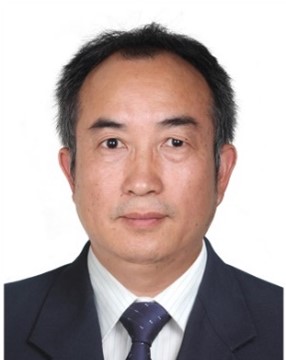 Speaker: Qijun Chen, Tongji University, China
Speaker: Qijun Chen, Tongji University, China
Title: Embodied Intelligence: New Opportunities in the AI Era
Abstract: The report delves into "embodied intelligence: new opportunities in the AI era". It summarizes the historical milestones and representative achievements in the field of control, reflecting on the main problem of control discipline research over the past two decades. It introduces the rise and new developments of the intelligent era represented by large models and embodied intelligence. The integration of "ontology, algorithms, and scenarios" with embodied intelligence is poised to become a new focus in the field of control. The report shares the latest research progress in visual-language-navigation from the research group, and explores the research and application directions of "large models + embodied robots".
Qijun Chen, a tenured distinguished professor at Tongji University, previously served as the Dean of the School of Electronic and Information Engineering at Tongji University. Mainly engaged in research on artificial intelligence and robotics. Member of the National Standardization Technical Committee, Member of the Automation Teaching Guidance Committee of the Ministry of Education, Director of the Integrated Automation Technology Professional Committee of the Chinese Association of Automation, Standing Committee Member of the Robot Competition Working Committee of the Chinese Association of Automation, Standing Committee Member of the Intelligent Robot Professional Committee of the Chinese Association for Artificial Intelligence, and Vice Chairman of the Shanghai Association of Automation. Chief Scientist of the Key R&D Program of the Ministry of Science and Technology, Outstanding Talent of the Ministry of Education in the New Century, Outstanding Academic Leader of Shanghai, Scholar of Shanghai Dawn, and Leading Talent of Shanghai. Hosted more than 20 key projects of the National Natural Science Foundation of China, general projects, international cooperation projects between China and Japan, China US NIH international cooperation projects, National 863 Program projects, National Science and Technology Support Program projects, and various provincial and ministerial level key projects. Published and edited 2 books, 1 monograph, published over 300 papers, won 2 first prizes in Shanghai Science and Technology Progress Award, 1 first prize in Shanghai Natural Science Award, 1 first prize in Shanghai Technology Invention Award, 1 first prize in Ministry of Education Science and Technology Progress Award, and 1 second prize in Ministry of Education Natural Science Award.
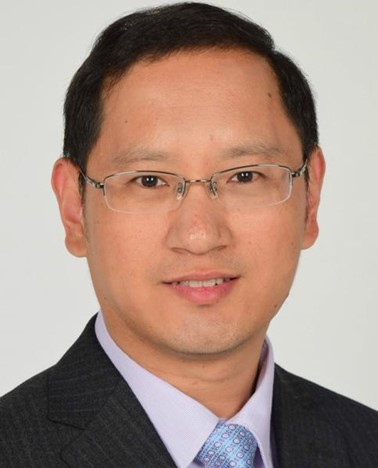 Speaker: Jinliang Ding, Northeastern University, China
Speaker: Jinliang Ding, Northeastern University, China
Title: Control and Optimization in the AI Era: Driven by Demand to Promote Intelligent Transformation
Abstract: The control and optimization in the AI era face enormous challenges. How to meet challenges and achieve the intelligent transformation of control disciplines is a widely concerned issue. From the perspective of the national strategy for intelligent process industry, there is an urgent need for intelligent upgrading and transformation in control and optimization. Driven by the actual demand for industrial intelligence, this report introduces the progress made in combining control and optimization with artificial intelligence. The purpose is to deepen the discussion and broaden our thinking by throwing bricks, and to meet the challenges brought by AI.
Jinliang Ding is currently a Professor with the State Key Laboratory of Synthetical Automation for Process Industries, Northeastern University. He has authored or coauthored over 200 refereed journal and international conference papers, and has invented or coinvented more than 50 patents. His research interests include modeling, plant-wide control and optimization for the complex industrial systems, machine learning, industrial artificial intelligence, computational intelligence, and its application.
Dr. Ding has received numerous awards, including the Young Scholars Science and Technology Award of China (2016), the National Science Fund for Distinguished Young Scholars (2015), the National Technological Invention Award (2013), the Natural Science Award of Liaoning Province (2022), and the First-Prize of Science and Technology Awards from the Ministry of Education in 2006, 2012, and 2018. Additionally, one of his articles in Control Engineering Practice won the Best Paper Award for 2011–2013. He also serves as an Associate Editor for IEEE Transactions on Evolutionary Computation, IEEE Transactions on Emerging Topics in Computational Intelligence, and IEEE Transactions on Circuits and Systems II: Express Briefs.
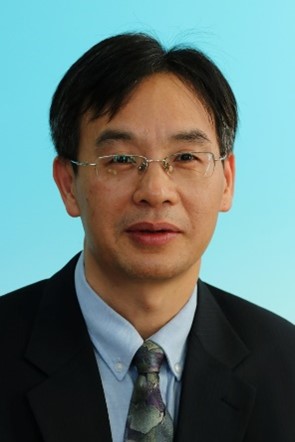 Speaker: Yongchun Fang, Nankai University, China
Speaker: Yongchun Fang, Nankai University, China
Title: Task-Oriented Aerial Robots: Aerial Cable-suspended Transportation and Aerial Manipulation
Abstract: Currently, the applications of unmanned aerial vehicles (UAVs) primarily focus on such non-contact observational activities as monitoring, photography, and reconnaissance. Nevertheless, in operational tasks, multirotor UAVs can also play a significant role. Typical task-oriented aerial tasks include aerial cable-suspended transportation and aerial manipulation. The aerial cable-suspended transportation system utilizes a sling to connect the load to the multirotor, effectively leveraging the high maneuverability of the multirotor and accommodating loads of various sizes without restriction. By installing a multi-link manipulator arm at the bottom of the multirotor, the aerial manipulation system can directly perform active operations on the load, allowing for more complex interactive tasks with targets or the environment. Both aerial cable-suspended transportation and aerial manipulation greatly enrich the range and manner of UAV applications.
Yongchun Fang received the B.S. degree in electrical engineering and the M.S. degree in control theory and application, both from Zhejiang University, P. R. China, in 1996 and 1999, respectively, and the Ph.D. degree of electrical engineering from Clemson University in 2002. From 2002 to 2003, Dr. Fang was a postdoctoral research fellow at the Mechanical and Aerospace Engineering Department, Cornell University. Since 2003, he has been a professor at the Institute of Robotics and Automatic Information System, Nankai University, Tianjin, P. R. China. Dr. Fang is currently the Vice President of Nankai University, and also a Yangtze River Distinguished Professor of the Chinese Minister of Education. Dr. Fang’s research interests include underactuated systems control, visual servoing, AFM-based nano-manipulation, and so on. Dr. Fang is a recipient of the China National Funds for Distinguished Young Scientists, and he won the First Prize of Wu Wenjun Natural Science of Artificial Intelligence in 2017, Awardee of Chinese Top Ten Scientific and Technological Progress in Intelligent Manufacturing in 2019.
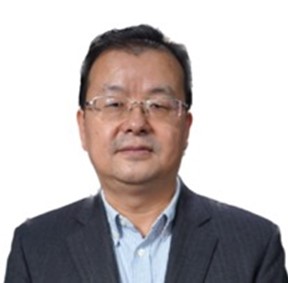 Speaker: Jianru Xue, Xi’an Jiaotong University, China
Speaker: Jianru Xue, Xi’an Jiaotong University, China
Title: The practice and exploration led by autonomous systems for undergraduate education in automation
Abstract: The rapid development of artificial intelligence has brought new opportunities to the education of undergraduates in automation. In this talk, I focus on three aspects of the education in automation. Firstly, the body of knowledge architecture of the automation needs to be reshaped, and it is necessary to shift from automatic control systems to autonomous systems. Secondly, technologies of data and artificial intelligence enrich the means of control system implementation, and the traditional interface between control and decision-making needs to be redefined their. Finally, I share my experience and perception of teaching undergraduate courses.
Jianru Xue, Professor of Xi’an Jiaotong University. His research interests include computer vision, pattern recognition and machine learning, and autonomous driving and human-machine hybrid augmented intelligence. He and his team won National Natural Science Award (second class) in 2016, National Technology Invention Award in 2007, the IEEE ITSS Institute Lead Award in 2014, and the best application paper award in Asian Conference on Computer Vision 2012. He has published 100+ papers in top cited journals and conferences. He had severed as editors of Frontier of Information Technology& Electronic Engineering, Visual Intelligence, Acta Automatica Sinica, Robot, etc.
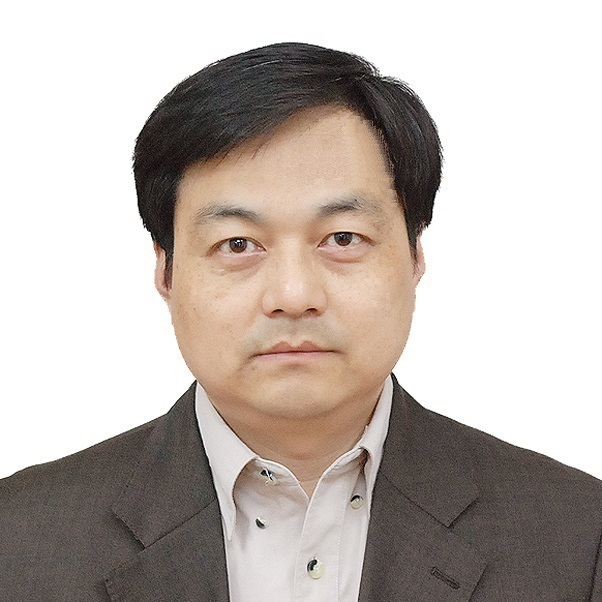 Speaker: Zhigang Zeng, Huazhong University of Science and Technology, China
Speaker: Zhigang Zeng, Huazhong University of Science and Technology, China
Title: Implementing the Fundamental Mission of Bachelor Education: Comprehensive Enhancement of the Quality of Talent Development
Abstract: The report focuses on advancing undergraduate education and teaching reform, emphasizing a student-centered, output-oriented, and continuously improving approach. The reform is guided by an assessment philosophy, implemented through assessment measures, and validated by evaluation standards, aiming to achieve high-quality, content-oriented development. The emphasis is on prioritizing moral education, fostering moral character through positive education. The commitment to a people-centered approach seeks to promote comprehensive human development through suitable educational methods, ensuring individuals possess not only knowledge and skills but also good moral character and qualities.
The report outlines the construction of a multi-dimensional, all-encompassing, collaborative moral and character education system across various dimensions and timeframes. It advocates for the deep integration of character building and talent cultivation, creating a talent development model. The "student-centered education" philosophy permeates the entire education process, forming a distinctive moral and character education system.
Furthermore, the report discusses the establishment of a core demonstration course group. Using a foundational-applied-refinement-innovation iterative teaching approach guided by demonstration courses, the goal is to ensure the implementation of an all-round education which features innovation and challenge. There is a continuous effort to enhance the curriculum's advanced nature, increase its challenge level, encourage innovative thinking, improve students' ability to solve complex problems, and cultivate innovative talents.
Zhigang Zeng, IEEE Fellow, Dean of the School of Artificial Intelligence and Automation at Huazhong University of Science and Technology, Director of the Key Laboratory of Image Information Processing and Intelligent Control of the Ministry of Education. Obtained a Ph.D. in System Analysis and Integration from Huazhong University of Science and Technology in June 2003. Conducted postdoctoral research at the Chinese University of Hong Kong and the University of Science and Technology of China. Served as an editorial board member for IEEE Transactions on Neural Networks, IEEE Transactions on Cybernetics, IEEE Transactions on Fuzzy Systems, Cognitive Computation, Neural Networks, Applied Soft Computing, Acta Automatica Sinica, Control Engineering, Systems Engineering and Electronics, and Control Theory and Applications. Received awards such as the Ministry of Education Natural Science Award (First Prize), Hubei Province Natural Science Award (First Prize), Hubei Province Science and Technology Progress Award (First Prize), and the National Science and Technology Progress Award (Second Prize).